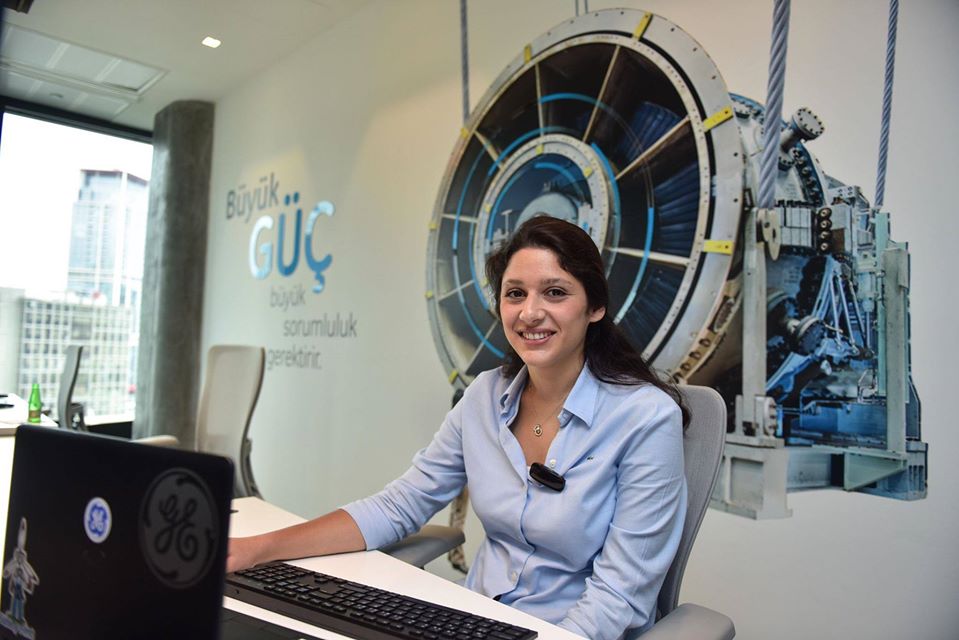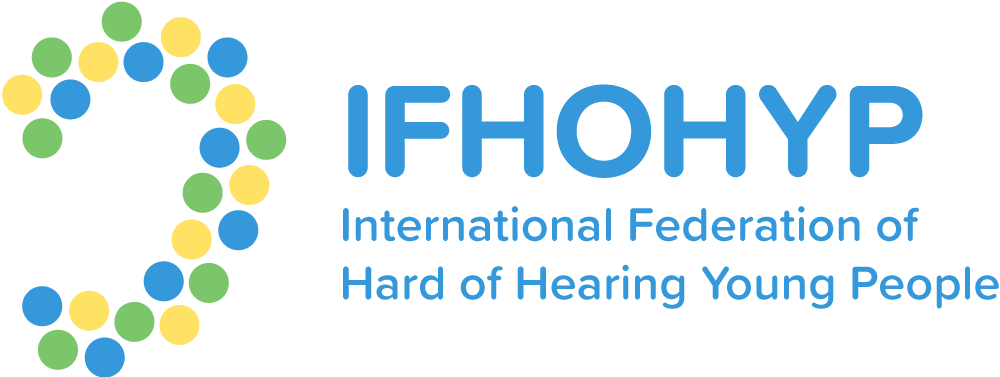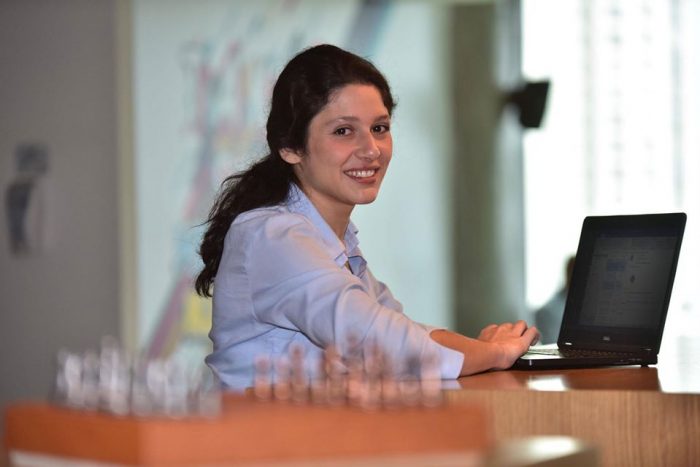Irina Ivanova:
Hi Есе! Can you tell us and the readers more about yourself?
ЕСЕ SAYGI:
I am Ece, from Istanbul. I am first pedriatric cochlear implant user in Turkey. So my main communication method is talking, thanks to CI on my right ear. For the purpose of developing cochlear implant & hearing aid devices, I decided to study electrical & electronics engineering.
During my university years, I worked in Cochlear Australia as a part time student employee and also interned in Cochlear Belgium as Engineering Intern.
Currently, I am working at General Electric based in Istanbul and I am responsible for supporting Wind Services. Moreover, since 2011, I have been an active volunteer in both national and international organizations specialized in hearing loss issues. I also learnt sign language to break the barriers between deaf and hard of hearing community, therefore in Istanbul, I organized workshops on more powerful society that involves all people with hearing issues. I believe in this: The more united are people, the more power they have.
You work at General Electric company in Istanbul and are responsible for data management related to wind turbines? Can you tell us a bit more about this company and also what does it mean to be responsible for data management related to wind turbines? What your duties are?
I am working at General Electric Wind Services and my main responsibility is to form databases that all internal stakeholders can access, update and follow the work processes. Internal stakeholders mean departments in the business. For example, Finance, Sourcing, Sales of Wind Services. These databases are always related to wind turbines in Middle East, North Africa andTurkey. General Electric is a large company that was built by Edison in 19th century. Now this company has so many businesses such as Digital, Renewable Energy, Power, Healthcare and so on. Wind is just one, but a vital part of Renewable Energy.
Do you mean that wind turbines work like a computer? And is your job similar to that of a system administrator?
Let me give you one example of databases I formed. When customer requests a product/service from us, I prepare an offer and discuss the offer with the customer. If the offer is finally approved by customer, then many departments such as Finance, Logistics and Sales take part in this process until the customer receives the product/service in full. So my job is to track all this process and record the steps.
So tracking all these processes is vital to many departments. For example, Finance should know if Logistics department delivered the product to customer. If the product is delivered, then finance can create an invoice and track the payment.
Sometimes we have emergency situations when wind turbine need repairs. For example, if the weather is bad like having lightnings which can affect the blades badly. A blade can be damaged, it might need to be repaired or replaced. All these process are considered emergency because the turbine should not stop for long time, otherwise it would mean money loss for thecustomer.
Besides emergency cases, we also have a periodical process of repair and maintenance of turbines.
So do you need to use phone and makes call despite being hard of hearing, since you need to track all these processes and record the steps?
Yes, our meetings are mostly done via Skype meetings, therefore I must understand what is being said with my headphones but luckily, I have a mini microphone with me which helps me understand via my CI. When I don’t understand something, especially English accents, I ask them to type the words I don’t understand due to my hearing disability. It is not a big deal for people.
What skills are required at your work position?
Analytical thinking and fast solution oriented approach are needed. Some coding knowledge is enough and communication skills are quite important.
Can you give some non-confidential successful example of your help?
I can tell that the parts sales of turbines increased thanks to the useful database I formed because it made easier to track requests, processes and decreased turnaround time.
What you say sounds very interesting, but it looks like hard work. As I understood a totally deaf person wouldn't be able to work on this position, some level of hearing is required. How come that the company hired you? Employers often consider phone conversations or extensive communication with people an obstacle for the hearing impaired person
No, just to take results of technical values for wind turbines, I need to use simple coding skills but it is not that much.
The company of course asked me if i can talk on the phone. I had to say the truth: "I have hearing impairment but I use mini microphone which helps me understand conversations over the phone but it is still not as perfect as face to face communication."
The manager understood it and didn't see it as a big deal because he suggested me to ask people to repeat if I dont understand something.
It is a big obstacle for hard of hearing and deaf people, but I was lucky to have an interview with a boss who is neither prejudiced nor worried about my hearing loss.
Once I had trouble understanding Pakistani accent in one Skype meeting. I had to tell my boss this. My boss told me that I don't have to join this meeting anymore if I don't feel comfortable. Otherwise he suggested me to ask people to repeat what they said.
I believe that being honest and self-confident helped me succeed in getting that job.
But education plays its role too, I think! Working on wind turbines is rather an unusual turn. What education did you get?
Yes of course, it does. I have Bachelor's Degree in Electrical and Electronics Engineering.
What skills did you get as a student? What did you learn in this school? What knowledge gained during your studies did you need at this job?
I got the basic skills every EEE (electrical electronic engineer) would get. For example, MATLAB, Java, circuit design, analytic thinking etc. We learn how electronics and software work in a general and technical way.
To be honest, for my job, there is not so much need of knowledge of electronics. The most important criteria is analytical approach to sales, sourcing, finance and operations. The second most important criteria is communication skills. Good English command is also a must.
How come that you decide to get degree of electrical electronic engineer? Were you particularly into math or did you have an example to follow?
I decided to be electrical and electronics engineer because of my dream since high school. I love Math and Science but what is more important that my dream was to work in an area related to cochlear implants and hearing aids.
I find cochlear implants fascinating because it is a crazy system that helps people to hear better and makes their lives easier. Hearing aids are also tiny parts for people with hearing loss. Because every person has a different hearing story, finding a perfect hearing aid for a person is not always easy. I find these so interesting, and as a cochlear implant user, I feel quite familiar with this area - hearing loss sector.
Therefore I had my part time job and internships at Cochlear Company in Australia and in Belgium. Now my first job is not related to hearing loss at all but I do hope very much that I can transition to health sector soon.
I love wind turbines because they are so clean and help environment and economy a lot. However, my heart is always with hearing loss sector.
So you know about hearing loss at both sides. As a HOH person and as an engineer. What did you do as intern at Cochlear Company in Australia and in Belgium? Did you have a personal discovery about working in hearing loss sector?
While in Australia, I tested battery life of cochlear implants and was responsible of some reportings. In Belgium, it was more hardcore engineer stuff. I tested a small part of a microchip which is found in a cochlear implant device and checked if the computer program results and my manual calculations match at all. I did not make a personal discovery because it was too short time to discover something cool but I can share a very funny experience. When I was testing battery life of a CI device, I had to test many identical CI devices. And these devices were identical to my own CI device on my ear.
So I was distracted a bit due to tiredness and because of habit, I absent-mindedly put the tester CI device on my ear and felt a small electric shock in my ear. I was scared to death, but no one noticed it and luckily I am still here.
And since you got experience in testing CI, can you suggest something to people who wish to get CI. What should they pay attention to?
There are many people asking me if they should get CI or not. First I advice them to see a doctor. If their doctor recommended them getting a CI, then they can start researching CI brands. I cannot say a lot about brands minus my personal experience with my CI brand. They also start researching speech & listening therapy. Then I can recommend them recommended therapists in Istanbul. I also emphasize the importance of studying and working hard after getting CI (such as practicing speech, doing homework assigned by rehabilitation services, practicing with family&friends etc.)
Thank you for the advice! Our interview is about to end. What are your plans for future?
I have always pursued career in health sector especially in hearing loss industry, therefore I am still planning to do it. However, my dream job in short term is to be project manager. By the way, thanks to IFHOHYP, I met my fiancé who lives in Switzerland. Therefore, I am currently looking for jobs in Switzerland and jobs related to project engineering, project management etc. in health, biomedical and renewable energy sectors. I also have dream to get Masters in project management or MBA. So let’s see how it goes.


